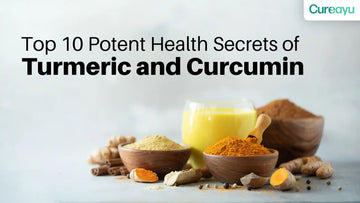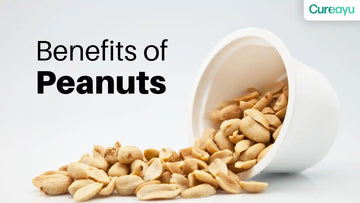Turmeric, often referred to as the "golden spice," is not only renowned for its vibrant color but also for its rich history in traditional medicine. Derived from the rhizomes of the Curcuma longa plant, turmeric has been a staple in Ayurvedic and traditional Chinese medicine for centuries. Curcumin, the primary bioactive compound in turmeric, is responsible for its distinctive hue and is known for its potent antioxidant and anti-inflammatory properties. This compound has garnered significant attention in modern research for its potential health benefits, ranging from supporting joint health to promoting cognitive function and heart health.
What are Turmeric and Curcumin
Turmeric is a bright yellow spice commonly used in cooking, especially in curry dishes. It has a warm, bitter taste and is often used to color or flavor foods. Curcumin, on the other hand, is the main active ingredient in turmeric. It has powerful anti-inflammatory and antioxidant properties, making it a popular supplement for various health conditions.
10 Health Benefits of Turmeric and Curcumin
1. Powerful Anti-Inflammatory Properties
- Curcumin inhibits the activity of inflammatory enzymes in the body, such as cyclooxygenase-2 (COX-2) and lipoxygenase (LOX).
- It reduces the production of inflammatory cytokines, such as tumor necrosis factor-alpha (TNF-alpha) and interleukin-6 (IL-6).
- Curcumin suppresses the NF-kB signaling pathway, a key regulator of inflammation in the body.
- It modulates the expression of genes involved in inflammation, helping to alleviate symptoms of chronic inflammatory conditions.
2. Potent Antioxidant Activity
- Turmeric's antioxidants, such as curcuminoids and volatile oils, scavenge free radicals and neutralize oxidative stress in the body.
- It enhances the activity of antioxidant enzymes, including superoxide dismutase (SOD), catalase, and glutathione peroxidase.
- Turmeric protects cellular structures from oxidative damage, including DNA, proteins, and lipids.
- It enhances the body's natural antioxidant defense system, helping to maintain cellular health and longevity.
3. Improved Brain Function
- Curcumin increases the production of brain-derived neurotrophic factor (BDNF), promoting the growth and survival of neurons in the brain.
- It enhances synaptic plasticity and neurotransmitter function, improving cognitive function and memory.
- Curcumin reduces oxidative stress and inflammation in the brain, protecting against neurodegenerative diseases like Parkinson's and Alzheimer's.
- It crosses the blood-brain barrier and exerts neuroprotective effects directly within the central nervous system.
Also Read: A Deep Dive into Depression Signs, Causes, and Treatments
4. Enhanced Heart Health
- Turmeric improves endothelial function by increasing nitric oxide production, promoting vasodilation and blood flow.
- It reduces inflammation in the arteries, preventing the formation of plaques and lowering the risk of atherosclerosis.
- Turmeric inhibits platelet aggregation and thrombosis, reducing the risk of blood clots and cardiovascular events.
- It regulates lipid metabolism, lowering levels of LDL cholesterol and triglycerides while increasing HDL cholesterol levels.
5. Potential Cancer Prevention
- Curcumin inhibits the proliferation and metastasis of cancer cells by modulating multiple signaling pathways involved in cell growth and survival.
- It induces apoptosis (programmed cell death) in cancer cells, preventing their unchecked proliferation.
- Curcumin enhances the efficacy of conventional cancer treatments, such as chemotherapy and radiation therapy, while reducing their side effects.
- It targets cancer stem cells, which are responsible for tumor initiation, recurrence, and drug resistance.
6. Better Digestive Health
- Turmeric stimulates the gallbladder to produce bile, improving digestion and nutrient absorption.
- It reduces symptoms of gastrointestinal disorders like indigestion, bloating, and gas by promoting smooth muscle contraction in the digestive tract.
- Curcumin protects the intestinal lining from damage caused by toxins, pathogens, and inflammatory mediators.
- It modulates gut microbiota composition, promoting the growth of beneficial bacteria and inhibiting the growth of harmful pathogens.
Also Read: Navigating Digestion with the Art of Food Selection for Gut Harmony
7. Relief from Arthritis Symptoms
- Curcumin suppresses the activity of enzymes that degrade cartilage in the joints, such as matrix metalloproteinases (MMPs) and aggrecanases.
- It reduces inflammation in the synovial membrane, alleviating pain, swelling, and stiffness in arthritic joints.
- Turmeric inhibits the production of inflammatory cytokines, such as interleukin-1 beta (IL-1β) and tumor necrosis factor-alpha (TNF-alpha), in arthritic joints.
- It enhances joint lubrication and mobility by stimulating the production of synovial fluid and hyaluronic acid.
8. Regulated Blood Sugar Levels
- Turmeric improves insulin sensitivity and glucose uptake in skeletal muscle cells, reducing insulin resistance and hyperglycemia.
- It inhibits gluconeogenesis (the production of glucose from non-carbohydrate sources) in the liver, lowering fasting blood sugar levels.
- Curcumin protects pancreatic beta cells from oxidative stress and inflammation, preserving their function and insulin secretion.
- It modulates the activity of enzymes involved in carbohydrate metabolism, such as glucokinase and glucose-6-phosphatase, maintaining blood sugar homeostasis.
9. Support for Skin Health
- Turmeric's anti-inflammatory properties reduce redness, swelling, and irritation in inflammatory skin conditions like acne and eczema.
- It inhibits the activity of enzymes that break down collagen and elastin fibers in the skin, preventing premature aging and wrinkles.
- Curcumin scavenges free radicals and inhibits lipid peroxidation, protecting skin cells from oxidative damage caused by UV radiation and environmental pollutants.
- Turmeric's antimicrobial properties inhibit the growth of acne-causing bacteria like Propionibacterium acnes, reducing the risk of breakouts and infections.
10. Boosted Immune System
- Curcumin modulates immune cell function, enhancing the activity of T cells, B cells, natural killer (NK) cells, and macrophages.
- It increases the production of cytokines involved in immune regulation and response, such as interleukin-10 (IL-10) and interferon-gamma (IFN-γ).
- Turmeric stimulates the proliferation and differentiation of immune cells in lymphoid organs like the spleen and lymph nodes.
- It enhances the phagocytic activity of macrophages, improving their ability to engulf and destroy pathogens, toxins, and cellular debris.
Ayurvedic Point of View
- In Ayurveda, turmeric is considered a "rasayana" herb, meaning it rejuvenates and nourishes all bodily tissues, promoting overall health and longevity.
- It balances the "doshas" (biological energies) in the body, particularly "pitta" and "kapha," which govern metabolic and immune functions.
- Turmeric is used in Ayurvedic formulations to treat a wide range of ailments, including digestive disorders, inflammatory conditions, skin diseases, and respiratory infections.
- It is often combined with other herbs and spices in Ayurvedic remedies to enhance its therapeutic effects and improve bioavailability.
Conclusion
Turmeric and curcumin offer a wide range of health benefits, from reducing inflammation and oxidative stress to supporting brain function and heart health. Incorporating turmeric into your diet or taking curcumin supplements may help improve various aspects of your health and well-being, making it a valuable addition to your daily routine.
In summary, the health benefits of turmeric and curcumin are vast and diverse, making them valuable additions to any health-conscious individual's lifestyle.








